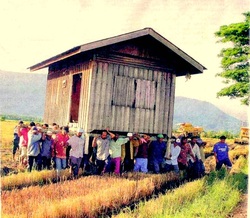Let me explain a bit further. All games, at some level, have to teach their players how to play and be successful in the game world. Once upon a time, this was done with weighty manuals (Civilization 2 had a manual spanning 200 pages when I got that in 1996), but now the teaching aspects of games tend to be embedded in the gameplay. Although games are only ever going to be a proxy for classroom teaching, I do think there are some essential principles followed by the best games, which make their ‘teaching’ elements effective. I call these the “Nintendo Principles”, after the company who, according to Metacritic, have made 5 of the top 10 games of the last 20 years.
These ‘Nintendo Principles’ are perfectly illustrated in the most recent release from the Japanese game studio, the Legend of Zelda, Breath of the Wild. The game follows an ‘open world’ approach, meaning that players are thrown in with very little preamble, and can pursue their own path through the game. So far, so progressive. In all honesty, I am not recommending an ‘open world’ approach to teaching, curriculum is too important, but because of its structure, the Legend of Zelda has to do almost all of its ‘teaching’ in game, whilst ensuring there is a good balance of challenge and reward. My contention is that these ‘Nintendo Principles’ are comparable to the fundamentals of good classroom teaching and provide a useful starting point for new teachers to consider their practice. They are also principles which pupils will be aware of, either implicitly or explicitly.
Principle 1: Challenge is Important to Motivation
Video games producers have a direct interest in ensuring their games hit the right level of challenge. For producers, getting this spot on means more interest, greater longevity, and the prospect of better reviews and critical acclaim. In most adventure games, challenge is linked to story progression (another powerful tool), but it might also be connected to collecting a range of items, achieving certain goals in a number of areas etc.



 RSS Feed
RSS Feed
